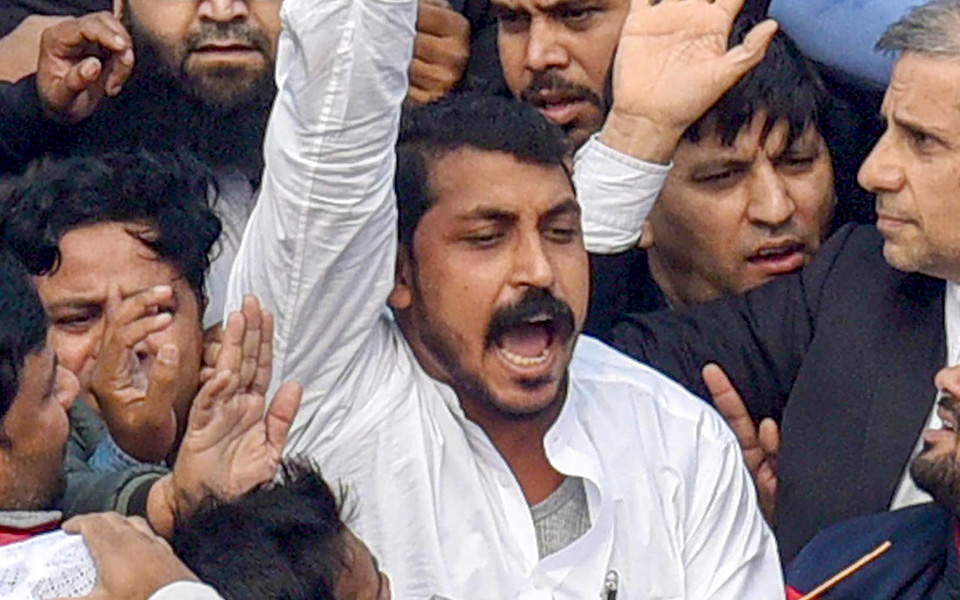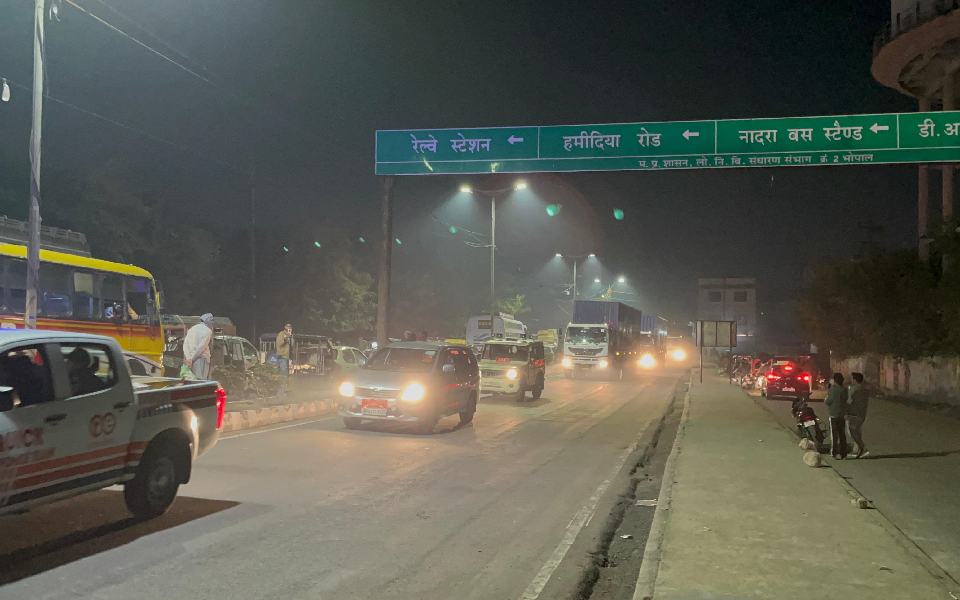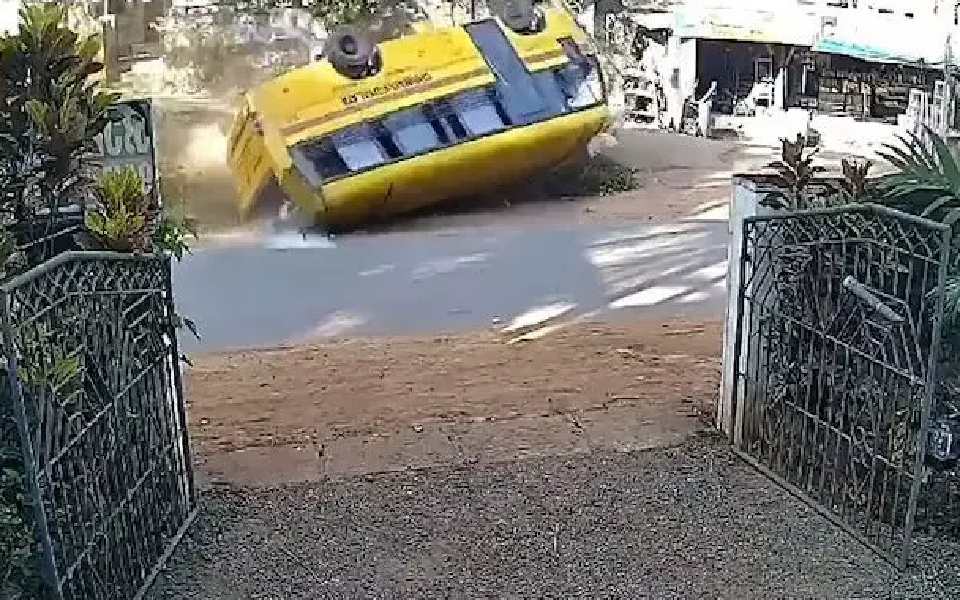New Delhi, Jan 16: Bhim Army chief Chandra Shekhar Azad, who was arrested in connection with the violence during an anti-CAA protest in Old Delhi's Daryaganj, was released from Tihar Jail on Thursday night, officials said.
Azad's outfit had organised a march from Jama Masjid to Jantar Mantar against the amended citizenship act on December 20, without police permission. He was sent to judicial custody on December 21.
On Wednesday, a Delhi court had granted bail to Azad, who was accused of inciting people during the anti-CAA protest at Jama Masjid.
The court also restrained Azad from visiting Delhi for four weeks and directed him not to hold any dharna till the elections in the national capital.
Additional Sessions Judge Kamini Lau had granted the relief to Azad on furnishing a bail bond of Rs 25,000.
While granting bail to Azad on Wednesday, the judge recited Rabindranath Tagore's famous poem 'Where the Mind is Without Fear' and said citizens have a fundamental right to peaceful protest which cannot be curtailed by the state.
"I am reminded of our reverend patriotic poet Rabindranath Tagore who is most relevant today. He during the colonial era in early 1900's when British followed the policy of Divide and Rule, visualised a nation where where there is no fear in the minds people and education is attained by all; people are enlightened and do not create walls of discrimination," she had said.
Let the Truth be known. If you read VB and like VB, please be a VB Supporter and Help us deliver the Truth to one and all.
Bhopal, Jan 1: Forty years after the Bhopal gas tragedy, the shifting of some 377 tons of hazardous waste began from the defunct Union Carbide factory on Wednesday night for its disposal, an official said.
The toxic waste is being shifted in 12 sealed container trucks to the Pithampur industrial area in Dhar district, 250 km away from Bhopal.
"12 container trucks carrying the waste set off on a non-stop journey around 9 pm. A green corridor has been created for the vehicles which are expected to reach Pithampur industrial area in Dhar district in seven hours," said Bhopal Gas Tragedy Relief and Rehabilitation Department Director Swatantra Kumar Singh.
He said around 100 people worked in 30-minute shifts since Sunday to pack and load the waste in trucks.
"They underwent health check-ups and were given rest every 30 minutes," he added.
Highly toxic methyl isocyanate (MIC) gas leaked from the Union Carbide pesticide factory on the intervening night of December 2-3, 1984, killing at least 5,479 people and leaving thousands with serious and long-lasting health issues. It is considered to be among the worst industrial disasters in the world.
The Madhya Pradesh High Court on December 3 rebuked authorities for not clearing the Union Carbide site in Bhopal despite directions from even the Supreme Court and set a four-week deadline to shift the waste, observing that even 40 years after the gas tragedy, authorities were in a "state of inertia".
The high court bench had warned the government of contempt proceedings if its directive was not followed.
"If everything is found to be fine, the waste will be incinerated within three months. Otherwise, it might take up to nine months," Singh told PTI on Wednesday morning.
Initially, some of the waste will be burnt at the waste disposal unit in Pithampur and the residue (ash) will be examined to find whether any harmful elements are left, Singh said.
The smoke from the incinerator will pass through special four-layer filters so that the surrounding air is not polluted, he added.
Once it is confirmed that no traces of toxic elements are left, the ash will be covered by a two-layer membrane and buried to ensure it does not come in contact with soil and water in any way.
A team of experts under the supervision of officials of the Central Pollution Control Board and State Pollution Control Board will carry out the process, Singh said.
Some local activists have claimed that 10 tons of Union Carbide waste was incinerated on a trial basis in Pithampur in 2015, after which the soil, underground water and water sources in surrounding villages became polluted.
But Singh rejected the claim, stating that the decision to dispose of the waste at Pithampur was taken only after the report of the 2015 test and all the objections were examined.
There would be no reason to worry, he said.
A large number of people had on Sunday taken out a protest march in Pithampur to oppose the disposal of Union Carbide waste in the city which has a population of about 1.75 lakh.
12 trucks carrying 337 tonnes of toxic waste from the Union Carbide factory in Bhopal, stored for 40 years, left at 9:05 p.m. for Pithampur near Indore. The waste is expected to arrive early on January 2nd, following a 250-km green corridor with heavy security.
— The Hindu (@the_hindu) January 1, 2025
📹@MehulMalpani pic.twitter.com/zU78cVRE85





